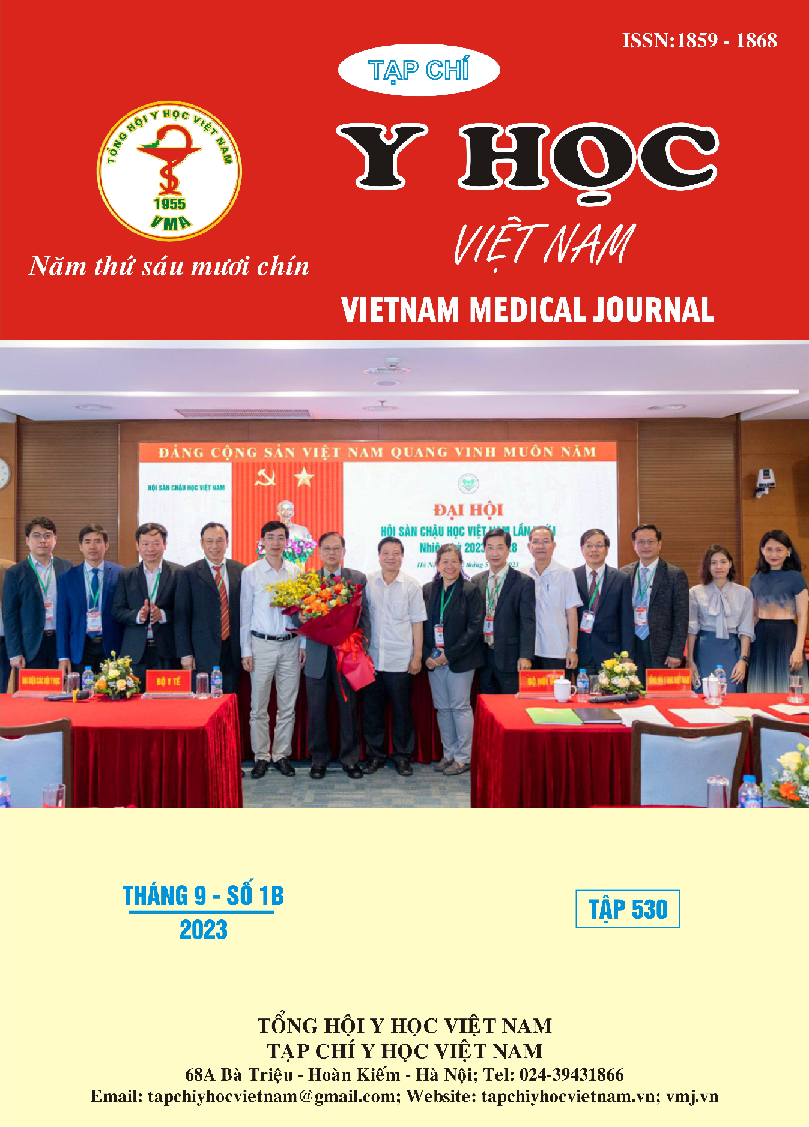NUTRITIONAL AND IMMUNOLOGICAL CHANGES IN PATIENTS WITH SEVERE BRAIN INJURY WHO WERE PROVIDED 80% OF THE ENERGY DEMAND ON THE FIRST DAY AND REACHING 100% ON THE SECOND DAY IN THE DEPARTMENT OF NEUROLOGY AND NEURO INTENSIVE CARE, VIET DUC HOSPITAL
Main Article Content
Abstract
We carried out a study with the objective of describing nutritional and immunological changes in patients with severe traumatic brain injury who were provided with 80% of their energy needs on the first day and reached 100% on the second day by enteral nutrition. This is a study using a cross-sectional descriptive method performed on 27 patients in the Department of Neurology and Neuro Intensive care at Viet Duc Hospital. The results of the study showed that the patients received early enteral nutrition by providing 80% of the energy requirements on the first day and reaching 100% on the second day had the increase in the following nutritional indicators: The number of nutrients, including Protein, Albumin, Tranferrin, and prealbumin, increased after 12 days of feeding (p <0.05). Immune index, including IgA and peripheral blood lymphocytes, also increased after 12 days of feeding (p<0.05). In summary, in patients with severe traumatic brain injury, early enteral nutrition should be provided.
Article Details
Keywords
nutrition; traumatic brain injury.
References
2. Nwafor D, Goeckeritz J, Hasanpour Z, Davidson C, Lucke-Wold B. Nutritional Support Following Traumatic Brain Injury: A Comprehensive Review. Explor Res Hypothesis Med. 2022; 0(000):0-0. doi:10.14218/ ERHM. 2022.00086
3. Wang X, Dong Y, Han X, Qi XQ, Huang CG, Hou LJ. Nutritional support for patients sustaining traumatic brain injury: a systematic review and meta-analysis of prospective studies. PloS One. 2013;8(3):e58838. doi:10.1371/ journal.pone.0058838
4. Dhandapani M, Dhandapani S, Agarwal M, Mahapatra AK. Pressure ulcer in patients with severe traumatic brain injury: significant factors and association with neurological outcome. J Clin Nurs. 2014;23(7-8):1114-1119. doi:10.1111/ jocn.12396
5. Harris JA, Benedict FG. A Biometric Study of Human Basal Metabolism. Proc Natl Acad Sci U S A. 1918;4(12):370-373.
6. Lee R, Nieman D. Nutritional Assessment. 6th edition. McGraw Hill; 2012.
7. Moore FA, Moore EE. Early Postinjury Enteral Nutrition: Does it make a Difference? In: Vincent JL, ed. Yearbook of Intensive Care and Emergency Medicine. Yearbook of Intensive Care and Emergency Medicine. Springer; 1996:250-259. doi:10.1007/978-3-642-80053-5_22
8. Huang YC, Yen CE, Cheng CH, Jih KS, Kan MN. Nutritional status of mechanically ventilated critically ill patients: comparison of different types of nutritional support. Clin Nutr Edinb Scotl. 2000;19(2):101-107. doi:10.1054/clnu.1999.0077


